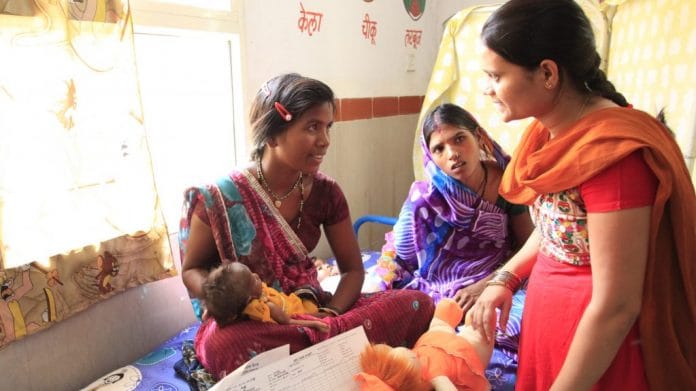New Delhi: Married women who have more socially aware female friends feed their daughters a more protein-rich diet and give them fewer household chores, a recent World Bank study has concluded.
Having empowered female peers may not have an effect on a woman’s own autonomy but is likely to have a significant impact on the upbringing of her daughter, the study has found.
The paper, released in April, examines what it calls the “shock” effect of a “friends’ empowerment”, and how it greatly influences a woman’s decision-making at home, especially with respect to children.
Study from Uttarakhand
The World Bank paper uses primary data from Uttarakhand where it recorded women’s social networks amid restrictive social norms and a virilocal residence. Virilocal residence refers to married couples who either live with or near the husband’s parents.
The study sample consisted of 404 women and includes data on their ties to 942 friends and friends-of-friends from 69 randomly chosen villages. The paper is a first to study “the self-reported social networks of married women in India” and tries to determine whether these networks affect what happens inside a household, said Eeshani Kandpal, the Washington-based author of the paper.
The data was used to estimate the effect having an empowered friend had on a woman’s autonomy, perceptions of social norms on gender roles and investment in children.
“In India, despite high economic growth, the persistence of child malnutrition can be attributed to a large extent on the Asian Enigma Syndrome, which shows a strong correlation between the subjugation of women and their lack of autonomy on malnutrition,” Dr Saleema Razvi, research consultant at Copenhagen Consensus Center, told ThePrint.
Woman’s autonomy and investment in daughter
The study relied on women who have participated in the Mahila Samakhya — a government-run women’s education programme existing here since 1995.
The report says that these village self-help groups provide formal education and vocational training, but are also the meetings “where first-time participants talk about their lives and their place in the household and society”.
The programme also “educates women on how to access social safety nets, and interact with government officials and employers” and has had some “transformative power”.
The study found that women who participate in the programme are more likely to leave the house without permission, have access to government social safety nets, and work off the family farm.
It also found that women who do not participate in the programme but have friends who are participants are also more likely to leave the house without permission and work outside the household. But other aspects such as perceived gender roles and social norms remained largely unaffected because of this ‘peer shock’.
The study records that the transformative impact was seen on the choices the women started making for their children, especially a daughters’ diet and time spent on chores.
“It is widely proven that a mother’s literacy and her autonomy have a significant impact on infant mortality and child nutrition,” Dr Razvi said.
Investment in children is used as a proxy to denote intra-household bargaining in the study, which means the discussions that take place within a family to arrive at key decisions that the household is supposed to take as a unit, such as where and how to spend.
Also read: Lack of jobs in India affects women more than men






